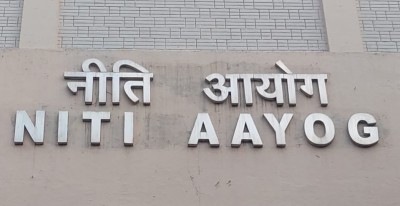
New Delhi, Kerala has topped among the larger states in overall health performance in the fourth edition of the State Health Index for 2019-20 released by Niti Aayog here on Monday.
"On overall ranking based on the composite index score in 2019-20, the top-ranking states were Kerala and Tamil Nadu among the 'Larger States', Mizoram and Tripura among the 'Smaller States', and DH&DD and Chandigarh among the UTs", said the report.
The report titled 'Healthy States, Progressive India' ranks states and Union Territories on their year-on-year incremental performance in health outcomes as well as their overall status. The fourth round of the report focuses on measuring and highlighting the overall performance and incremental improvement of states and UTs over the period 2018-19 to 2019-20.
The report was released jointly by Niti Aayog CEO Amitabh Kant, Vice Chairman Dr Rajiv Kumar, Additional Secretary Dr Rakesh Sarwal, and World Bank Senior Health Specialist Sheena Chhabra. The report has been developed by Niti Aayog, with technical assistance from the World Bank, and in close consultation with the Union Health Ministry.
To ensure comparison among similar entities, the ranking in the report has been categorized as 'Larger States', 'Smaller States' and 'Union Territories'. Among the 'Larger States', in terms of annual incremental performance, Uttar Pradesh, Assam and Telangana are the top three ranking states. Mizoram and Meghalaya registered the maximum annual incremental progress among 'Smaller States'. Delhi, followed by Jammu and Kashmir among UTs showed the best incremental performance.
"States are beginning to take cognizance of indices such as the State Health Index and use them in their policymaking and resource allocation. This report is an example of both competitive and cooperative federalism," said Dr Rajiv Kumar while releasing the report.
Amitabh Kant said, "Our objective through this index is to not just look at the states' historical performance but also their incremental performance". The index encourages healthy competition and cross-learning among states and UTs, he added.


.jpeg)

